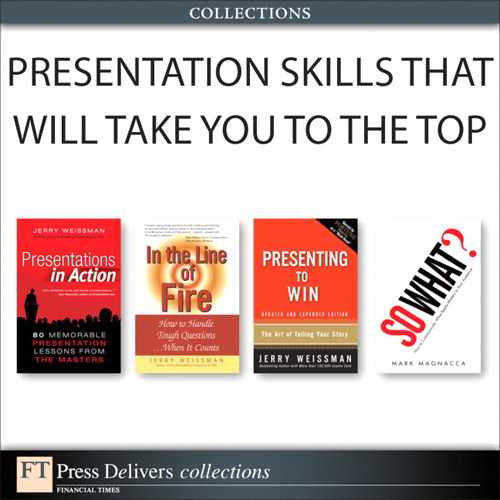67. When Did You Stop Beating Your Wife?: How to Handle False Assumption Questions
Sooner or later, every human being is confronted with tough questions. One of the toughest and most common is the infamous loaded question “When did you stop beating your wife?” which implies that you have indeed been beating your wife. How do you answer without agreeing with the implication? How do you not answer without appearing evasive?
Courtroom dramas often include a scene in which an antagonistic prosecutor points his finger at a defendant and asks accusingly, “Why did you kill your partner?” implying that the person—who has pleaded not guilty—did kill the partner. Or “What did you do with the gun?” implying that the person did possess the murder weapon.
This is known as a false assumption, and the only way handle such a question is to apply the noted antidrug slogan championed by Nancy Reagan: Just say, “No!”
The defendant should say, “I did not kill my partner.” The businessperson should deny the false assumption. And if anyone ever asks you when you stopped beating your wife, simply rebut the fallacy by saying, “I never started.”
Former Secretary of State Colin Powell is an excellent speaker and a master at handling tough questions. One of his most challenging Q&A sessions came at a press conference he held shortly after the start of the Iraq war. A Lebanese journalist asked him:
Mr. Secretary, a lot of fears have been made about who is next. And some people believed to be close with the administration said that the regimes backing Cairo and in Saudi Arabia should be nervous right now. How do you address that point? And does the U.S. have a plan to spread a set of values at gunpoint, in your view, at this point?F67.1
“... a plan to spread a set of values at gunpoint ....” This question accused the United States of acting as a villainous bully, and Mr. Powell could not give credence to this charge. When he retook the floor, he immediately countered the accusation: “No, of course not.”
Neither Colin Powell, nor you, nor any presenter is under any obligation to respond to a wrongful accusation in any other way than with a complete refutation. If you are attacked with a question that contains or implies an inaccuracy, do as Mr. Powell did. Say, “No.”
Or do as Barack Obama did in his first press conference that took place less than a month after he took office. With the financial crisis weighing heavily on the nation, the media honeymoon of his election victory and inauguration ceremonies ended abruptly: 3 of the 13 questions asked by the reporters in that session were false assumptions.
The first was from Associated Press reporter Jennifer Loven, who began by referring to Mr. Obama’s statement earlier that same day that the economic crisis might be irreversible, and then asked him, “Do you think that you risk losing some credibility or even talking down the economy by using dire language like that?”
Mr. Obama’s first four words were, “No, no, no, no.”
Caren Bohan of Reuters then asked, “Did you underestimate how hard it would be to change the way Washington worked?”
The president replied, “I don’t think I underestimated it. I don’t think the American people underestimated it.”
Chip Reid of CBS News asked the third false assumption question: “You talked about that if your plan works the way you want it to work, it’s going to increase consumer spending. But isn’t consumer spending, or overspending, how we got into this mess? And if people get money back into their pockets, do you not want them saving it or paying down debt first, before they start spending money into the economy?”
Mr. Obama said “no” again. “Well, first of all, I don’t think it’s accurate to say that consumer spending got us into this mess. What got us into this mess initially were banks taking exorbitant, wild risks with other people’s monies, based on shaky assets.”F67.2
In each case, the president demonstrated his trademark cool demeanor, contradicting his interrogator and then moving on to correct the fallacy by stating his own position on the given issue.
The next time someone asks you a false assumption question, follow Colin Powell and Barack Obama’s examples and take Nancy Reagan’s advice: Just say, “No!”
